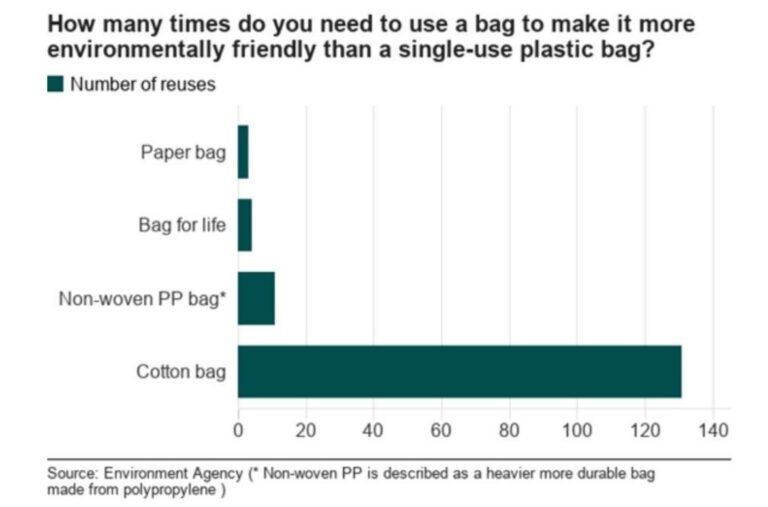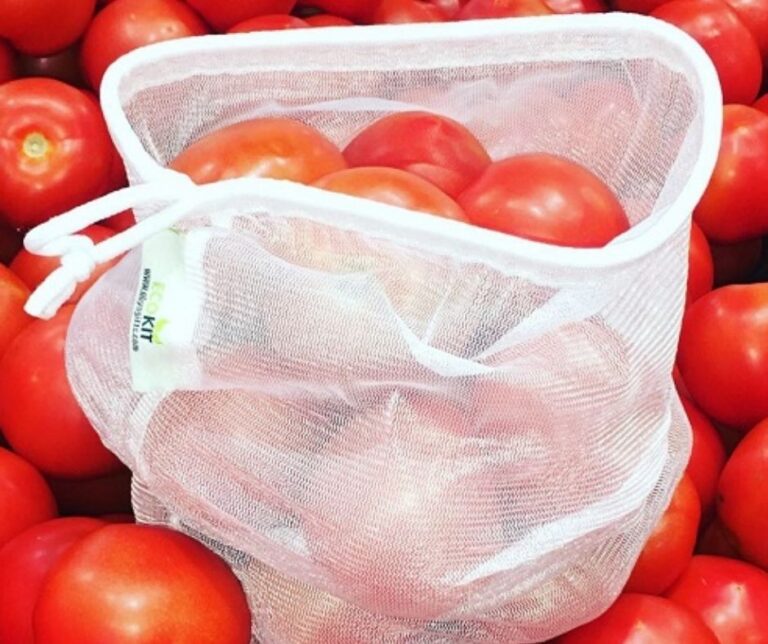
Everyone knows that single-use plastic bags are bad for the environment.
Single-use anything is bad as we need to reuse, recycle and repurpose things to reduce our impact on the planet.
The problem with plastic bags isn’t though, in production, as plastic bags have a lower production footprint than paper bags and cotton bags.
In 2011 the Northern Ireland Assembly carried out research showing that it “takes more than four times as much energy to manufacture a paper bag as it does to manufacture a plastic bag.”
Unlike plastic bags (which the report says are produced from the waste products of oil refining) paper requires forests to be cut down to produce the bags.
According to the research, the manufacturing process also produces a higher concentration of toxic chemicals compared with making single-use plastic bags.
The other popular alternative, cotton bags, due to the intensive impact of growing and harvesting cotton, has an even bigger initial footprint than paper.

The UK environment agency carried out a study to find out how many times a bag needed to be used to have a lower ‘global warming potential’ than a single-use plastic bag.
The study found paper bags needed to be re-used at least three times, one fewer than plastic bags for life (four times).
At the other end of the spectrum, the Environment Agency found that cotton bags required the most number of reuses, at 131.
But even if a paper bag requires the fewest reuses there is a practical consideration: will it last long enough to survive at least three trips to the supermarket?
Paper bags are not as durable as bags for life, being more likely to split or tear, especially if they get wet.
On the other hand, Cotton bags, despite being the most carbon-intensive to manufacture, are the most durable and will have a much longer life.
So how can you reduce your impact when it comes to shopping and produce bags?
Margaret Bates, professor of sustainable waste management at Northampton University says; ‘the key to reducing the impact of all carrier bags – no matter what they are made of – is to reuse them as much as possible’.

If you don’t have any produce bags you can re-use at the moment, one of Play It Green’s favourite more sustainable alternatives is made by our friends over at Eco Pandas.
Their produce bags are a must-have to anyone starting their zero waste journey, no longer will you have to use the plastic bags at markets and supermarkets.
Like their reusable shopping bags, these fruit & veg bags are also made from rPet, recycled plastic bottles, and are BPA free and food contact safe.
So not only do they help you reduce your footprint, but they are also stopping plastic waste from ending up in landfills and the oceans (and we all know how bad that is).
To help you take your next step to a more sustainable future, Eco Panda is offering a 10% discount on not only their amazing produce bags but on their entire range of sustainable products!
Simply head over to the Eco Panda website and use the code PLAYITGREEN10 at checkout.
‘Changing your produce bag is a small step in the journey we all need to take. I love products that solve more than one problem and Eco Pandas’ recycled plastic mesh produce bags solve two issues and the bags themselves can be recycled adding even more circularity.’
Richard Dickson – Co-Founder, Play It Green
If you want to learn how to lower your footprint and help reforest the planet, take your first step on your journey to a sustainable future by subscribing to Play It Green for as little as £1.25/week.




